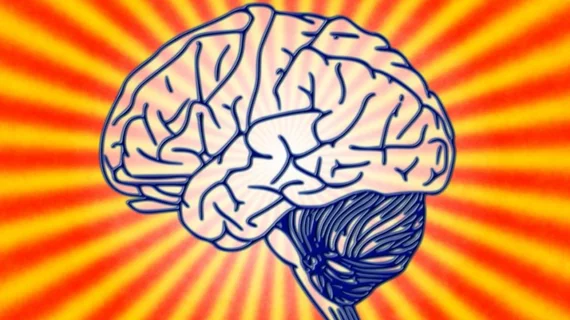40% of AFib patients have ‘silent’ brain damage that could explain predisposition to dementia
More than 40 percent of patients with atrial fibrillation (AFib) but no record of stroke or transient ischemic attack have previously unknown, “silent” brain damage, according to research presented this week at the European Society of Cardiology Congress (ESC) in Munich. The findings might explain why those with AFib also face an increased risk of cognitive dysfunction and dementia.
The prospective observational study, known as Swiss-AF and financially backed by the Swiss National Science Foundation, enrolled thousands of patients over 65 years old with AFib between 2014 and 2017, co-lead investigator David Conen, a professor at McMaster University in Hamilton, Canada, said in a release from ESC. The eventual analysis included 1,389 patients from 14 centers across Switzerland, all with AFib but no history of stroke or mini-stroke.
Conen and his team assessed the prevalence of silent brain damage in that population by evaluating hundreds of standardized brain MRIs, according to the release. Of the final pool, 41 percent showed at least one type of previously unknown brain damage.
“Four in 10 patients with atrial fibrillation but no history of stroke or transient ischemic attack had clinically unrecognized ‘silent’ brain lesions,” Conen said in the release. “This brain damage could trigger cognitive decline.”
In patients with brain damage, the most prevalent injuries were microbleeds, which affected 19 percent of that group. Fifteen percent had a cerebral infarct, while 16 percent had small, deep brain lesions, or lacunes.
The authors said their findings help link AFib and cognitive decline, which occurs even in patients who haven’t had a stroke before. Because of that, Conen said, researchers have known the risk of dementia associated with AFib can’t stem from stroke alone.
“Our results suggest that clinically unrecognized brain damage may explain the association between dementia and atrial fibrillation in patients without prior stroke,” he said.
The team’s study didn’t look into how oral anticoagulants—typically administered to AFib patients to prevent stroke—might have affected their results, Conen said, and further research is needed to validate the recent findings.
“All Swiss-AF participants underwent extensive cognitive testing,” he said. “These data will be analyzed to see whether patients with silent brain lesions also have impaired cognitive function.”

